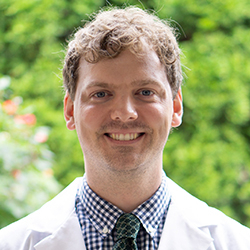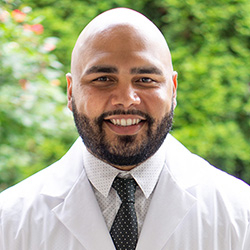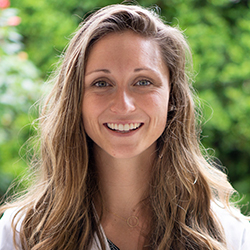Dreading Work? 5 Strategies for Finding Joy in Your Job Again

Written by Megan Hays, Ph.D., ABPP
Burnout was already a well-documented issue in healthcare workers prior to this global pandemic, but after multiple surges of COVID-19 we are seeing unprecedented levels of burnout and compassion fatigue in healthcare, leading to some professionals dreading their jobs or even thinking about quitting. Increased workloads, staffing shortages, and emotional trauma are just a few of the factors that have led to an increase in job dissatisfaction among healthcare workers during the pandemic. So how can you find joy in your job again while working in a helping profession? Check out these 5 practical tips to feel more joy in your work:
1. Get back to the basics: Water. Sunlight. Sleep. Movement. Have you been treating your basic needs more like “nice-to-haves”? Think again. Physical and mental health are inextricably linked, so neglecting these basics leaves us more vulnerable to problems like burnout and compassion fatigue, making it difficult to find joy in our day-to-day work. Consider pressing the reset button for your body and mind by creating some specific and realistic goals focused on your basic needs, and only focusing on one change at a time! For example:
-
Spending at least 30 minutes outside in the sun daily. Consider meeting this goal by simply eating your lunch outside or going on a brisk walk during your lunch break.
-
Bringing a large refillable water bottle to work and setting a goal for the number of times you will drink and refill the water bottle per day.
-
Going to bed 8 hours before you plan to wake up, even if you “still have so much to do.” There are always more things to do, but trying to be productive with insufficient sleep will make your job even harder.
2. Use your vacation and sick days: Americans have been taking less and less time off for decades. Research shows that most people take off about a week less than they used to 40 years ago. For healthcare workers, taking time off during the pandemic may lead to feelings of guilt or shame. Many studies have demonstrated the health benefits of taking a vacation, including decreased risk of heart disease and other illnesses, decreased depression and anxiety symptoms, and reduced stress. Going on a vacation, or simply taking time away from work for a staycation, improves employees’ productivity, as well as their energy and focus within the workplace. And when organizations and supervisors support employees taking vacation time, employee retention, employee loyalty to the organization, and job satisfaction all improve – which is a win-win situation!
3. Compartmentalize your work and home lives: If you are feeling burned out by your job or finding yourself dreading your workday, practice leaving work at work by creating better personal and professional boundaries. You can practice mental boundaries by stating “I am leaving my patients at work” to yourself before you leave for the day, or having a box on your desk that you symbolically put all work-related thoughts and emotions into before heading home. You can also create contextual cues that encourage separation between your work and home lives, such as leaving all paperwork in your workspace at the hospital before you go home, taking off your work clothes as soon as you arrive home, or immediately doing something enjoyable when you get home (such as cooking a new recipe, lighting your favorite candle, and/or listening to music). For those who work from home, make sure that you have a separate workspace that is different from where you spend your leisure time.
4. Reorient yourself to your “why”: Remember that for every why, there is a how. Healthcare workers have seen some dark times during the pandemic, and it can be easy to lose sight of the meaning behind the work that you do. Get into the practice of reminding yourself of your “why.” Why did you want to work into healthcare in the first place? Why did you start this journey (what may feel like) so many years ago? Understanding the driving force behind what you do can facilitate meaning and fulfillment in your job. Similarly, remind yourself of your unique skills and the ways in which you make a difference that are special. Perhaps you are the one at work who is always able to make your team laugh when humor is most needed, or you can remain calm and collected under significant pressure. Appreciating yourself and your contributions will open the door to feeling more joy in your work.
5. Know your values: Why is it important to know your values? Because knowing your values is like having a North Star to guide you back in the right direction when you are caught in a storm. Having values means that adversity, disappointments, losses, and trauma do not take away from your life’s greater meaning and purpose. Just because you have experienced more adversity as a healthcare worker during the pandemic does not take away from your values of helping others or contributing to your community. It is difficult right now, but these values can ultimately help you to find meaning in your work and build the resilience to see this pandemic through the other side when surges are fewer and farther between. In addition, it is critical to live a life consistent with your most deeply held values outside of work as well. For example, if family is one of your top values, think of just one concrete thing that you can do in the next day or even hour that reflects this value, such as FaceTiming with grandkids, playing hide and seek with your child, or enjoying a date night with your partner.
Postdoctoral Fellow Spotlight: Dr. Jordan Kennon
 Jordan Kennon, PsyD
Jordan Kennon, PsyD
Jordan is originally from New Mexico. She attended graduate school in Chicago and moved to Birmingham for the UAB-BVAMC consortium internship.
Why did you pick UAB to complete your postdoc training?
"I chose UAB because it is a strong academic medical center, with diverse patient populations within a collaborative environment. I was able to rotate through SRC as an intern and quickly grew to love the interdisciplinary setting - an environment that exemplifies compassion and high-level care as individuals are recovering. Further, the high level of training and passion for teaching was very evident and drew me to this fellowship as I knew I would grow as a psychologist over these two years."
What are your main responsibilities as a fellow in the rehab psych division? What do you enjoy most?
"As a fellow, I am rotating through all of the inpatient services (TBI/Stroke/Trauma/SCI), and I am responsible for intakes, follow-up counseling, brief bedside neuropsychological evaluations and tiered supervision of interns and graduate students. I also complete driving evaluations on an outpatient basis. I most enjoy supervising students and witnessing them become strong clinicians for our patients."
What do you like to do in your free time?
"I am an avid golfer and played college golf. I also enjoy traveling, trying new restaurants, spending time with friends and family, and a competitive night of board games."
Knight named AACVPR's new president

Dr. Amy Knight has been selected to serve as president for the American Association of Cardiovascular and Pulmonary Rehabilitation (AACVPR).
Founded in 1985, AACVPR is dedicated to its mission of reducing morbidity, mortality, and disability from cardiovascular and pulmonary disease through education, prevention, rehabilitation, research, and disease management. Central to the core mission is improvement in the quality of life for patients and their families.
The Board of Directors is the governing body for AACVPR and is responsible for developing the organization’s strategic plan and making fiscal and policy decisions that align AACVPR activities with its mission and vision and result in significant benefit to its members.
Dr. Knight is A longtime AACVPR member and has served on the Psychosocial and Nutrition Experts Group, the Program Planning Committee, and Outcome Measures Task Force.
During the annual AACVPR meeting in October, Dr. Knight presented "Building Equity in Rehabilitation - A Panel Discussion to Facilitate Inclusion" along with Dr. Amber Clark. They discussed the persistent disparities which exist in the utilization of cardiac and pulmonary rehabilitation for notable groups who are overrepresented in cardiovascular disease burden and death but underrepresented in cardiac rehab referral, participation, and completion rates. Social determinants of health are contributory, and systematic patient and provider-related factors coexist to perpetuate the problem.
Dr. Knight serves as the Division Director of Rehabilitation Psychology at Spain Rehabilitation Center (SRC). She received her Ph.D. in Clinical Psychology from the University of Wisconsin-Milwaukee. Her areas of interest are psychology, neuropsychology, stroke, and acquired brain injury.
Student spotlight: Jenny Hernandez, SPT
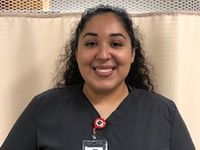
Jenny Hernandez, SPT
Jenny is a Samford physical therapy student originally from Nashville, TN. She attended undergraduate at Austin Peay State University. She plays piano, likes Schitt’s Creek, and loves to hike. She has been a tremendous help to the clinic since she is fluent in Spanish (her parents are from El Salvador). She will graduate from PT school in May of 2022 and plans to return to Tennessee for work to be closer to family.
Resident Spotlight: Dr. Jacob Schultz

Dr. Jacob Schultz is currently a PGY-3 resident. Schultz completed his undergraduate at the University of Kentucky and received his M.D. at the University of Louisville School of Medicine.
His career interests are inpatient rehab, TBI, and stroke with a mix of outpatient rehab.
Get to know Dr. Morrow
Why did you pick UAB?
I picked UAB because I saw a tight-knit resident community that truly cared about each other. Everyone has been so supportive of one another through the difficulties of residency. Every doctor must go through training - go through one with a good group of friends!
What are you most excited about in completing the residency program?
I'm excited to make a difference in the day-to-day lives of the patients I'll take care of and take on the responsibility that comes with being an inpatient physiatrist.
What do you like to do in your free time?
I enjoy spending time with my wife and daughter (and our son coming in February 2022!), hiking, playing tennis, and working on my yard.
Fun Fact
I come from a family of 9!
Championing a disability: One patient’s journey to the Paralympics and the Alabama Sports Hall of Fame
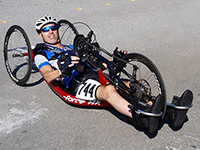 For Bryan Kirkland, life revolved around sports as he was growing up. A native of Leeds, Alabama, Kirkland played every sport from football and basketball to running track. In his family and around town, Kirkland was known for his ability to excel in any competitive activity; he was a natural athlete.
For Bryan Kirkland, life revolved around sports as he was growing up. A native of Leeds, Alabama, Kirkland played every sport from football and basketball to running track. In his family and around town, Kirkland was known for his ability to excel in any competitive activity; he was a natural athlete.
But at 20 years old, his life came to a startling halt when he suffered a spinal cord injury at a motocross event, crushing his fifth vertebrae and leaving him with C6 - C7 quadriplegia.
UAB Spain Rehab Patient
In 1992, just a month after his accident, Kirkland became a patient at the UAB Inpatient Spain Rehabilitation Center. The goal of his treatment was simple; he needed to gain strength to make it through his therapy sessions.
Amie McLain, M.D., professor and former chair in the UAB Department of Physical Medicine & Rehabilitation, and her team immediately knew that Kirkland’s case was different.
“For being so young, he had a remarkably positive outlook on his recovery. He is resilient in every aspect of his life. He always looks to what he can do, not what he can’t do.” She gives credit to his sportsman-like attitude.
McLain remembers the first rugby game she attended in support of Kirkland. Cheering him on alongside his family gave her an overwhelming sense of gratitude.
Kirkland stated that going from a young athlete to learning how to tie his shoes again was tough. He says that Dr. McLain and her team were essential in gaining strength to live a normal life.
Kirkland makes it clear that the support he has received from his community has been outstanding. He married his high school sweet heart, Shai Kirkland, in 1997.
“She was with me when I got hurt, she has been there with me every step of the way,” says Bryan Kirkland.
Kirkland recalls coming home for the first time since his accident to see hundreds of hand-written welcome home signs lining the road. He realized he was not in this fight alone.
Road to Paralympics
Following treatment, Kirkland had little hope that he would ever be able to participate in sports again. However, when he discovered the Lakeshore Foundation, he developed a new-found passion for wheelchair rugby and track.
“Lakeshore became my safe space for doing what I love most – sports.”
Kirkland’s coach, Kevin Orr, was an instrumental mentor during this process. Orr pushed his athletes to be the best versions of themselves. The turning point for Kirkland happened at a surprising time—during a children’s sporting event known as Super Sport Saturday.
“The children who participated in the camp had such a positive spirit. They did not dwell on their disability. They only focused on the abilities they had. This really changed my perception.”
It was from this moment on that Kirkland was inspired to pursue his career as a Paralympian.
Six years following the accident, Kirkland competed in the World Wheelchair games where he medaled in three different track and field events, setting a world record in the 200 meters.
Representing the USA, he medaled at the Paralympics in the years 2000, 2004 and 2008. In 2009, Kirkland was selected as a Hartford Athlete, an inspiring group of athletes nationwide with a mission to tell their story of overcoming adversity as an athlete.
While receiving a medal on the world stage was incredible, Kirkland says his proudest accomplishment occurred in 2012 when he was the first Paralympian to be inducted into the Alabama Sports Hall of Fame.
“This is my biggest accomplishment to this day, being inducted into such a prestigious able-bodied hall of fame. Instead of recognizing my disability, they recognized my talent.”
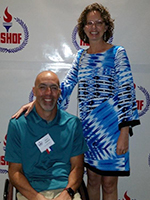 Life today
Life today
Kirkland currently plays on a highly-skilled wheelchair rugby club team based out of Austin, TX. He trains in Alabama but flies to Austin to play with his team once a month. With every opportunity he gets, he gives back to his community and places a high priority on building relationships so he can pass on knowledge to others.
His favorite way to give back is by working with wounded veterans. He insists on being recognized as a motivator, not an inspiration.
“We all have challenges in life, I want to motivate people to look past their disability and really see their potential.”
Spain Rehab Honors Patient for Building a Better Quality of Life

Mark McColl, chairman of Lakeshore Foundation and a longtime patient of UAB Spain Rehabilitation Center (SRC), is the 2020 recipient of SRC’s Ambassador of Hope Award.
The annual award goes to a disabled individual whose courage and determination inspire hope in others who face the challenges of disability.
McColl, 61, is a native of Chattanooga, Tenn., and a graduate of the University of Alabama. He began a successful career in engineering in the 1980s, starting in Houston and ending up in Birmingham, where he eventually took a position with Rust Engineering. It was there that McColl earned such accolades as ISA Young Engineer of the Year in 1988 and Rust Engineer of the Year in 1990. In 1995 he started his own company, Process Automation and Simulation Services (PASS), which grew to more than 50 employees at its peak before McColl retired in 2011.
It was not the early retirement he wanted. It was instead the inevitable result of McColl’s decades-long journey with a spinal cord injury that, over time, robbed him of much of his mobility.
“I didn’t have the typical sudden, acute spinal cord injury,” McColl says. “It was a disc rupture that slowly developed. In 2000, I began losing sensation in my left leg and having weakness in my right. Since I wasn’t having any problems with my arms or hands, my doctor assumed that I had problems in the lumbar region. He ordered imaging of that area and put me in physical therapy. By the time I began to lose use of my right leg, additional imaging showed that I had a severe cervical rupture.”
His condition was the first stage of spine deterioration and led to years of surgeries and treatments. The first surgery was a removal of the ruptured disc and a fusion of his C6 and C7 vertebrae, but as weakness in McColl’s legs increased and bladder problems emerged, he sought care from UAB Medicine neurosurgeon Mark Hadley, MD. In 2001, McColl underwent surgery to redo the fusion of the cervical vertebrae, which had failed.
McColl began doing outpatient physical therapy at Lakeshore Rehabilitation Hospital in 2003 and then joined the Lakeshore Foundation in 2004 to continue therapy. Weakness in his legs and right side progressed, so he sought treatment at multiple medical centers around the country. By 2007, McColl still had no answers for why he continued to lose sensation and function, other than the original damage to his cervical cord.
Full-Time Struggle
At that time, McColl was still managing the engineering firm he had started in 1995. “By 2009 I could barely walk, initially requiring one cane and then two, and I was limited to short distances, he says. “At the same time I was staying in good shape through physical therapy.”
As an engineer interested in new technologies, at each stage of loss McColl would find new devices that allowed him to remain as active as possible. He began using a Segway, a two-wheeled, self-balancing personal transportation device that seemed ideal for his needs, as he could ride it long distances and then use his canes for the final few steps. Soon after that adaptation, he began needing crutches to move short distances. In late 2010, McColl retired from the firm he founded to pursue what he calls a “last-ditch effort” to stay out of a wheelchair. He would tell people that his new job was now “full-time physical therapy.”
McColl traveled to Germany in 2011, where a surgeon replaced his L4/L5 disc with an artificial disc. A year later, follow-up imaging revealed that the section required fixation, which is a procedure used to internally set and stabilize fractured bones.
“It was one of the toughest things I had ever gone through,” he says. “I really didn’t think I could endure a second round of that, with the surgery, recovery, and travel being so grueling.”
Instead, McColl returned to UAB Medicine to again receive care from Dr. Hadley, who performed the lumbar fixation. The surgery was successful, but it hastened McColl’s inevitable decline to a wheelchair and a bladder and bowel program.
“At that point, I caught a major break in my journey,” McColl says. “My three weeks as an inpatient at Spain Rehab were under the care of Reid Warren and Alex York, a great pairing of physical and occupational therapists who were not reluctant to push me hard. I was lucky to have that team, because I figure if you are going to face the challenge of PT/OT anyway, you may as well go as far as possible. So you need that coaching and pushing on a lot of days when you might not try as hard on your own.”
A Peculiar Positive View
McColl says that a sense of humor, a positive outlook, and a willingness to push his limits are the only ways he has been able to manage his disability. With self-deprecating humor, McColl does note that you have to be careful what you wish for in that respect.
“For my first day of inpatient therapy, I didn’t have my usual therapists, and we were done in an hour,” McColl says. “Being a smart aleck, I asked the PT, ‘Is that all you’ve got?’ I was kidding around, but for her, my remark was the wrong challenge – even as a joke. She continued my therapy for another 30 minutes to show me what a real physical challenge felt like. I found out later that she was a bodybuilder! I tell this story often to show that you can always find humor, even in the midst of medical challenges and setbacks, and also to persuade others that they can go farther than they think they can, given the right circumstances, the right care teams, and a positive frame of mind.”
McColl says he understands that it’s an odd way to look at his situation, but he insists that going into the wheelchair actually improved his quality of life.
“Before that, especially when I was using crutches, just getting around or worrying about going to the bathroom would complicate daily life, to say the least,” he says. “It was painful and socially limiting too, since I was capable of maybe one outing a day. Moving to the wheelchair, along with making the change to catheterization for the bladder issues, made almost everything easier. So my daily focus became rehab at Lakeshore, and the wheelchair changed a lot of that, too.”
McColl says he was spending 3-4 hours at Lakeshore each day, between time in the pool, the fitness center, and playing wheelchair sports such as rugby, football, softball, and tennis.
“By 2014, I had been a member at Lakeshore for 10 years,” McColl says. “I guess they were thinking, ‘We need to get some work out of this guy.’ So in sheer desperation they asked me to be a board member. I was excited because it was a chance for me to give back to the organization that had given me so much.”
A Difficult Setback and New Adventure
In 2016, McColl suddenly faced what he regards as the most difficult period of all. After experiencing new numbness and weakness in his left leg, he underwent surgery to replace the screws and rods that had been placed in his back in 2012 and extend them to L3. The day after surgery, he fractured the L3 vertebra when he twisted to one side. This led to more surgery to extend the screws and rods to L2. Unfortunately, that vertebra fractured less than two weeks later, while McColl was at Spain Rehabilitation Center. This required two additional surgeries, with screws and rods extended all the way to T8.
McColl developed an infection and remained in the hospital for an extended period of time. Then he transferred back to SRC as an inpatient for another three weeks. All told, he was undergoing and recovering from surgeries from early November 2016 until two days before Christmas.
“It was definitely at my lowest point,” McColl says. “I know that because it’s the only time I briefly lapsed into a phase of depression. But you do what you have to do. Undergoing all the procedures and therapies for two full months set me back physically, too. At that point I knew it would be the wise, safe choice to give up wheelchair sports. I began looking for other activities to fill my time.”
Ever the engineer, McColl took an interest in 3D printing, specifically in creating devices for people with disabilities. In 2018, he and another Lakeshore member, Clay Bracket, formed Ability Tech Solutions. The company designs innovative items such as beverage holders and keychain clips that attach to wheelchairs. They also patented an automatic wheelchair lock.
“Most people with disabilities also struggle financially,” McColl says. “We wanted to make affordable items, so that was part of the design challenge. Clay, who has incomplete quadriplegia, and I both see ourselves as ideal designers because we understand the particular needs of people in wheelchairs. My getting involved with 3D printing just shows you that there’s always something out there if you look for it. For me, this experience is the textbook example of, ‘Okay, if this chapter of my life has to end, then what is my new chapter about? What can I accomplish? What’s the next adventure?’”
‘Shortest Path to a Better Life’
In 2017, McColl was approached to become vice-chair of the board of the Lakeshore Foundation, and he became chairman two years later. Another opportunity arose from his relationship with Reid Warren, manager of UAB Medicine Inpatient Rehabilitation Therapy.
“One day I was at Spain Rehab to get an X-ray,” McColl recalls. “I happened to see Reid, and he told me he was interested in getting Spain inpatients to visit Lakeshore Foundation and show them what’s possible. The idea was to let these patients see people like themselves playing sports, being independent, and leading full lives. I told him it was an awesome idea and to let me know what I could do to help make it happen.”
Warren says the patient relationship grew into a friendship. “Mark was one of my most memorable patients,” Warren says. “His infectious optimism and desire to better our community made a lasting impression, and I am grateful for the friendship we’ve maintained through the years. He has been an outstanding leader for Lakeshore Foundation.”
The annual Ambassador of Hope Award is the formal recognition of McColl’s many years of passion and advocacy for Birmingham’s rehabilitation community. He says years of experience with this community have provided him with an important perspective on his own condition.
“One key aspect of my situation is that the physical decline took place over a period of almost two decades,” McColl says. “My slow transition to various stages of disability softened the emotional and mental blows. Many patients I have met at Spain and at Lakeshore experienced a sudden, catastrophic injury that instantly changed their life forever. They had no opportunity to prepare. So I‘m extremely grateful that I have had the luxury of time to adjust. Additionally, I know many, many people who are dealing with much more challenging conditions than I am.”
As for being regarded as an ambassador of hope or a source of inspiration, McColl emphasizes that his approach is that of an engineer who has chosen a specific, logical strategy.
“Maybe it’s the engineer in me talking, but I think a good attitude is just the logical choice,” he says. “Many people credit me with fortitude because I maintain a positive outlook, but by choosing to stay positive, I’m just selecting the shortest path to a better quality of life. It’s a strategy. I’m going to feel better about things, other people hopefully will enjoy being around me, and I can make the most of the time given to me.”
Source: UAB Medicine
UAB's National Spinal Cord Injury Statistical Center awarded additional five years of funding
 The UAB Department of Physical Medicine and Rehabilitation has received a 5-year, $3.4 million grant renewal from the National Institute on Disability, Independent Living and Rehabilitation Research to continue the UAB National Spinal Cord Injury Statistical Center (NSCISC).
The UAB Department of Physical Medicine and Rehabilitation has received a 5-year, $3.4 million grant renewal from the National Institute on Disability, Independent Living and Rehabilitation Research to continue the UAB National Spinal Cord Injury Statistical Center (NSCISC).
NSCISC supports and directs the collection, management and analysis of the world’s largest spinal cord injury database, which is the hub for data collected by a network of 14 federally sponsored and three subcontract-funded Spinal Cord Injury Model Systems located throughout the United States.
“To date, our database contains demographic and conditional data on over 35,000 people with spinal cord injury,” said NSCISC director Yu-Ying Chen, MD, PhD. “Outcomes from five decades’ database research have led to significant advances in medical rehabilitation and improved quality of life for people with spinal cord injury.”
UAB has held the NSCISC grant since first being funded in 1984.
September is SCI Awareness Month
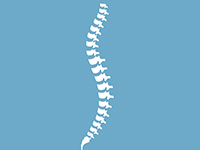
The UAB Department of Physical Medicine and Rehabilitation would like to recognize September as Spinal Cord Injury Awareness Month.
What is spinal cord injury?
According to the United Spinal Association, spinal cord injury is an injury to the spinal cord that may affect motor, sensory and autonomic function often resulting in paralysis, loss of sensation, and autonomic dysfunction. People who sustain a spinal cord injury often have permanent and profound neurologic deficits and accompanying disabilities.
Facts & Figures
- The estimated number of people with SCI living in the United States is approximately 296,000 persons, with a range from 252,000 to 373,000 persons.
- The average age at injury has increased from 29 years during the 1970s to 43 since 2015.
- About 78% of new SCI cases since 2015 are male.
- Recently, about 24% of injuries have occurred among non-Hispanic blacks, which is higher than the proportion of non-Hispanic blacks in the general population.
- Vehicle crashes are the most recent leading cause of injury, closely followed by falls. Acts of violence (primarily gunshot wounds) and sports/recreation activities are also relatively common causes.
Resources
- Professional Insights into Managing Pregnancy after Spinal Cord Injury
- Sexuality and Sexual Function after Spinal Cord Injury
- National Spinal Cord Injury Statistical Center
- NIH: Spinal Cord Injury for patients and consumers
- Pregnancy and Women with Spinal Cord Injury
- Pushin’ On Newsletter Volume 35(2), 2017
- Reproductive Health for Women with Spinal Cord Injury Video Series
- Travis Roy Foundation
- Academy of Neurologic Physical Therapy
News & Events
UAB's National Spinal Cord Injury Statistical Center awarded additional five years of funding
Otis' family life following spinal cord injury
Spain Rehab Honors Patient for Building a Better Quality of Life
Clark featured in UAB MedCast
 Dr. Amber Clark discusses the role of PM&R in stroke rehabilitation and how PM&R assists patients and medical care teams in acute care while they are awaiting the next phase of their recovery process. She shares how this can help physicians continue to advocate for and improve the wellbeing of the stroke population.
Dr. Amber Clark discusses the role of PM&R in stroke rehabilitation and how PM&R assists patients and medical care teams in acute care while they are awaiting the next phase of their recovery process. She shares how this can help physicians continue to advocate for and improve the wellbeing of the stroke population.
Resident Spotlight: Dr. Lendrum Morrow

Dr. Lendrum Morrow is currently a PGY-3 resident. Morrow received his undergraduate from Brigham Young University and completed his masters at the Medical University of South Carolina College of Medicine.
His career interests are MSK, Sports, Ultrasound, Interventional Pain, Electrodiagnostics, General Rehab.
Get to know Dr. Morrow
Why did you pick UAB?
It's a big academic medical center, I love the southeast, Birmingham is a great place to live and raise kids, and the comradery among the residents is very apparent.
What are you most excited about in completing the residency program?
I look forward to do what I love most as a career!
What do you like to do in your free time?
Sports, running, traveling, spending time with my family.
Fun Fact
I am the sixth and my new son is the seventh David Lendrum Morrow (seven generations!)
Hays, Mahoney address strategies to help patients overcome emotional distress

Drs. Megan Hays and Elaine Mahoney gave a packed house lecture to the department inpatient rehabilitation team on July 15, 2021.
Their talk titled "The Anxious Patient: Practical Strategies for Addressing Anxiety and Emotional Distress with Patients and Families in Inpatient Rehabilitation" aimed to address the struggle patients and families face after suffering from a significant injury or illness.
Hays and Mahoney listed four practical techniques for managing anxiety and emotional distress:
-
Breathing exercises: with a focus on slow exhales through pursed lips and breathing into the diaphragm rather than the chest.
-
Grounding exercises: reorienting individuals to the present by focusing on the things they can see, hear, smell, taste, and feel in their current environment
-
Distraction techniques: using conversation or other activities to break the cycle of worry
-
Exposure techniques: using graded exposure to help patients confront feared activities or situations
In addition to the four techniques, they also highlighted tips for managing anxiety with patients who have cognitive deficiencies.
"The psychology service remains available to assist, but we hope that these simple strategies can serve as a front-line effort for managing anxiety and emotional distress when it occurs.", said Mahoney.
Knight receives 2021 CJ Rosencrans Psychology Training Award

Amy Knight, Ph.D., ABPP received the CJ Rosencrans Psychology Training Award for outstanding mentorship and teaching in the field of clinical psychology by the UAB-Birmingham VA Psychology Internship Consortium.
CJ “Rosie” Rosecrans, Ph.D., established the UAB Clinical Psychology Doctoral Internship during the 1960s. Later, the training program expanded to include the Birmingham VA Medical Center (BVAMC) and trainees in the Sparks Clinics.
In addition to establishing the training program, Rosecrans was instrumental in crafting legislation regarding the licensing of psychologists in Alabama and was one of the first psychologists to be licensed in the state. Active with both American Psychological Association (APA) and Alabama Psychological Association (aPA), he was a strong advocate for psychology at local and national levels.
Rosecrans was board certified in clinical psychology and a fellow of the APA. He was a valued mentor, teacher, and colleague who embodied what it means to be a psychologist.
This prestigious award has gone to psychology faculty in the Department of Physical Medicine and Rehabilitation for the past seven consecutive years.
Clinical psychology intern for the UAB-BVAMC consortium, Jordan Kennon, M.A., a current trainee in the Physical Medicine and Rehabilitation Psychology Training program shares kind words about her time training under Knight.
"Dr. Knight brilliantly combines scientific knowledge and kindness, and this combination permeates through all of her interactions,” said Kennon. “Whether she is supervising a student, consulting a colleague, or interacting with a patient, it is abundantly clear how much she cares. She is one of the fiercest advocates for patients and trainees alike, always going above and beyond. Dr. Knight is inspiring and has provided the template for my future career as a fellow, supervisor and eventual licensed clinical psychologist."
Kennon is eager to begin her fellowship in rehabilitation psychology in August.
The department congratulates Knight on this prestigious accomplishment.
Wellness refrigerators are back!
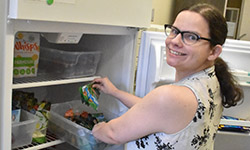
Pictured: Sarah Banasiewicz stocks the SRC refrigerator
After a year-long hiatus due to COVID-19, we are excited to announce the return of our two wellness refrigerators.
Every month, our department stocks two refrigerators with healthy snacks for all physical medicine & rehabilitation faculty, staff, and trainees. This effort is to ensure that even on busy days, we have healthy options onsite to help fuel our team. This shared experience has certianly been missed. "It feels like one more peice of what the pandemic took away from us is finally being restored", said Dr. Casey Azuero.
Dr. Megan Hays, clinical psychologist in the UAB Office of Wellness, shares a few evidence-based tips that the wellness refrigerators help facilitate:
-
Stimulus Control: Studies show that visible and reachable food items are often cues for unplanned eating. For those hoping to lose weight, this means that keeping junk food at eye level and within easy reach can impede weight management progress. The wellness fridge is set up for stimulus control because everything in the refrigerator is generally a whole food with nutritional value. Although donuts have their place in life, we do not keep junk food items in the wellness fridge for this reason.
-
Habit Research: If you have read the popular book Atomic Habits by James Clear, you may be familiar with the Four Laws of Behavior Change that we can utilize to build better habits. Our PM&R wellness fridge fits right in with those guidelines, which are: 1) make it obvious - the wellness fridge is front and center in the SRC breakroom!, 2) make it attractive - the fridge content sure looks nice when fully stocked and organized, 3) make it easy - I mean, the fridge couldn't be more convenient when at work, and every option is a healthy one, and 4) make it satisfying - the food tastes good and is also more filling than junk food.
-
Eliminating Shopping Temptation: One barrier to weight management can be what I call "shopping while hangry." The PM&R wellness fridge eliminates this barrier since the shopping is done online and already completed for employees, so the decision to choose only nutritious and filling snacks and drinks is already made for us before the food even arrives.
-
Nurturing Social Relationships: Social relationships are important for both mental well-being as well as physical health. Research has demonstrated that those with close friends and family are healthier and live much longer than those who do not. We have noticed that the PM&R wellness fridge really brings people together and strikes up conversations between employees who may not otherwise have the opportunity to interact frequently.
Locations
Spain Rehab Center
5th floor breakroom
The Workplace
File room
Department celebrates Disability Pride Month
 Thirty-one years ago, on July 26, 1990, the Americans with Disabilities Act established the prohibition of discrimination against people with disabilities. In that same year, Boston held the first Disability Pride Day. While these historic events show remarkable progress, we as a community need to continue to partner, collaborate, advocate and educate.
Thirty-one years ago, on July 26, 1990, the Americans with Disabilities Act established the prohibition of discrimination against people with disabilities. In that same year, Boston held the first Disability Pride Day. While these historic events show remarkable progress, we as a community need to continue to partner, collaborate, advocate and educate.
With our colleagues and friends across the University of Alabama at Birmingham, the UAB Department of Physical Medicine and Rehabilitation would like to recognize the month of July as Disability Pride Month. The month-long observance celebrates and encourages taking pride in one’s whole self, which can include disabilities. For individuals with disabilities, the month can bring support from the community and in turn acceptance and pride for self-identity and unique differences. For allies and the community, the month provides education on disability services and a platform to support important causes.
I encourage you to explore the resources listed below and continue to be an active partner in supporting equal access for individuals with disabilities.
Thank you, and happy Disability Pride Month!
Danielle K. Powell, MD MSPH
Interim Chair, Department of Physical Medicine and Rehabilitation
Five common thinking traps and what to think instead

“I already messed up my plan by eating a piece of cake, so I might as well start my diet over again on Monday!” “I have a really bad headache. Could this be a brain tumor?!” “My coworker never says hello when I pass her in the hallway. She must hate me!”
What do all of these thoughts have in common? They are good examples of cognitive distortions – aka “thinking traps” – that we all fall into at times. You may notice that the thoughts above are not very rational, but irrational or not, our thoughts affect how we feel and how we ultimately behave. We have a tendency believe that our thoughts are completely rational and true in the moment, when in reality they are just thoughts. Even when a thought is inaccurate, unhelpful, and downright mean, we can act like the most aggressive of defense attorneys when it comes to believing our automatic negative thoughts (e.g., “See – I knew I was worthless. I can’t do anything right!”).
Cognitive-Behavioral Therapy (CBT), first introduced by psychologist Aaron Beck in the 1960s, is a type of psychotherapy that has a robust evidence base for helping people with a broad range of mental health concerns, including depression, anxiety, and insomnia, among others. Cognitive-behavioral theory posits that our mood and the way we feel is impacted by our thoughts and behaviors. CBT therefore involves efforts to change thinking patterns, and one of the strategies for doing this is identifying cognitive distortions and replacing them with new, more helpful thoughts. Check out the five common thinking traps below to help you identify potential traps in your own thoughts, as well as what you might think instead.
All-Or-Nothing Thinking
This thinking style is often termed as black and white or dichotomous thinking and is one of the most common thinking traps. All-or-nothing thinking involves thinking in extremes. The presentation was either a total success or a complete failure. You are either great at your job or you are “horrible.” The antidote to this thinking trap is looking for the shades of gray or being more flexible in your interpretation of situations.
- Example: “I only have 20 minutes to exercise today, so I just won’t work out at all since I don’t have my usual hour.”
- Replace this with: “Something is always better than nothing. It is better to exercise for 20 minutes than 0 minutes.”
Catastrophizing
This thinking trap involves focusing on the worst possible outcome of a situation, and not on the most likely or probable outcome. What’s the solution for catastrophizing? DE-catastrophizing! Once you’ve assessed the worst-case scenario, ask yourself what the realistic odds are that your worst fear will come true. Then, take a look at other possible outcomes, and consider how you would cope even if the worst happened. We tend to underestimate our ability to handle even the most challenging of situations!
- Example: “I haven’t heard from my partner in 3 hours – he could be dead!”
- Replace this with: “He is probably just busy at work. There have been many times in the past that I worried when I didn’t hear from him, but nothing horrible ever happened.”
Emotional Reasoning
This thinking error involves seeing our feelings or emotions as evidence for the “truth,” regardless of the objective evidence. But just because you feel useless/like an imposter/stupid at times, does not mean that you really are those things. So how do we break free of emotional reasoning? We must always remember that feelings are not facts and tap into our logical reasoning skills by examining the objective evidence for and against our automatic negative thoughts.
- Example: “I feel really anxious on this plane ride, so I think something bad is about to happen.”
- Replace this with: “Feelings are not facts. I have been on many plane rides in the past and nothing bad has ever happened. The odds of being in a plane crash are less than one in 10 million. I can accept my feelings of anxiety without believing something awful will happen.”
Mind Reading
Ever jumped to the conclusion that someone just doesn’t like you? Mind reading is assuming that someone is thinking something negative about you without having any definitive evidence, which often leads to a self-fulfilling prophecy when the other person picks up on your odd behavior (after all, you have been acting like they didn’t like you!). What can we do once we recognize this thinking trap? Realize that no one can read minds and we can never really know what others are thinking unless they tell us.
- Example: “My boss hasn’t responded to my second email requesting information. She must think I am so annoying! I am probably her least favorite employee.”
- Replace this with: “She has been especially busy lately and is probably having to prioritize all of the items on her to-do list. I can think of many examples of times when my boss was very responsive to me in the past, and there is no reason to believe that she does not like me.”
Overgeneralization
When we encounter difficult situations, we can fall victim to overgeneralizing when we assume that it’s going to happen again every time, or that a single negative event is actually part of a series of unending negative events. If you find yourself thinking “Why does this always happen to me?” or “How typical – I’m just an unlucky person,” you may be caught up in the thinking trap of overgeneralization. We can overcome this error by catching ourselves using terms like “always,” “never,” “everybody,” and “nobody” and purposefully looking for any exceptions to the statement.
- Example: “That date was horrible! I am a terrible dater who will never find love.”
- Replace this with: “I am probably overgeneralizing. I’ve been on some fun dates, so this doesn’t happen every single time, and it’s very possible that it won’t happen next time either.”
Hello/Goodbye 2021: PM&R Residency
The UAB Department of Physical Medicine and Rehabilitation strives to provide all of our trainees with educational exeperiences to increase knowledge, enhance skills, and better serve your professional career goals.
Our three-year residency program includes rotations at Spain Rehabilitation Center, The Workplace at UAB Highlands, UAB Health System, Birmingham VA Medical Center, Andrews Sports Medicine & Orthopaedic Center, and Children's Hospital of Alabama.
Thanks to our program directors, Conley Carr, M.D., and Danielle Powell, M.D., our residents get to experience excellent training!
Hello
-
Daniel McBride, M.D.
Undergraduate: LSU Shreveport
Medical School: LSU School of Medicine in New Orleans
Internship: LSU School of Medicine in Baton Rouge
Career Interests: Stroke, SCI, Pediatric Rehab, Cancer Rehab, General Rehab, Medical Informatics.
-
Nelson Santos-Agosto, D.O.
Undergraduate: University of Central Florida
Medical School: Philadelphia College of Osteopathic Medicine
Internship: Brookwood Baptist Health
Career Interests: Sports Medicine, Diagnostic/Interventional Sports Medicine Ultrasound, MSK, Orthobiologics, Performance Nutrition, Exercise Physiology, Exercise Biomechanics, General Rehab, Interventional Spin
-
Natalie Dean, D.O.
Undergraduate: Westmont College in Santa Barbara
Medical School: Lake Erie College of Osteopathic Medicine
Internship: Brookwood Baptist Health
Career Interests: Pediatric rehab, Spinal cord injury rehab
-
Sarah Lopes, D.O.
Undergraduate: Mississippi State University
Medical School: William Carey College of Osteopathic Medicine
Internship: Brookwood Baptist Health
Career Interests: Inpatient Rehab
Goodbye
-
Mona Amad, M.D.
Undergraduate: Georgia Institute of Technology
Medical School: New York Medical College
Internship: Brookwood Baptist Health Systems
Next steps: Interventional Spine & Musculoskeletal Fellowship with OrthoAlabama Spine and Sport in Birmingham, AL
-
Joy DeShazo, M.D.
Undergraduate: Auburn University
Medical School: UAB
Internship: Brookwood Baptist Health
Next steps: Private Practice Physician at Encompass Inpatient Rehab in Huntsville, AL
-
Ryan Dill, M.D.
Undergraduate: Indiana University
Medical School: Indiana University
Internship: Brookwood Baptist Health
Next steps: Interventional Spine Fellowship at the University of Michigan in Ann Arbor, MI
-
Pierre Galea, M.D.
Undergraduate: University of Malta
Medical School: The University of Vermont
Internship: Brookwood Baptist Health
Next Steps: Private Practice Inpatient Physician at Brooks Rehab in Jacksonville, FL
The department welcomes new psychometrist, Phillip Stinson, M.S.
 We are delighted to welcome Phillip Stinson as psychometrist in the department of neuropsychology located in Spain Rehab Center. Stinson will work alongside Amy Knight, Ph.D., ABPP where he will administer psychological assessments to patients suffering from a variety of behavioral and neurological disorders.
We are delighted to welcome Phillip Stinson as psychometrist in the department of neuropsychology located in Spain Rehab Center. Stinson will work alongside Amy Knight, Ph.D., ABPP where he will administer psychological assessments to patients suffering from a variety of behavioral and neurological disorders.
Stinson received his B.S. in psychology and political science from Tuskegee University and his M.S. in Clinical Psychology from Alabama A&M University. His career began in West Neuropsychology at Princeton Hospital, where he worked for nearly ten years.
Stinson’s reason for pursuing a career in the field of psychology is due to his natural curiosity of the human mind. “I feel it is my job here at Spain Rehabilitation to help educate the public in the care of our most important organ. Mental health needs to be a top priority, especially in this day and age,” said Stinson.
Welcome to UAB, Phillip!
The Department Welcomes Newest Team Member, Jenny Marwitz, M.A.
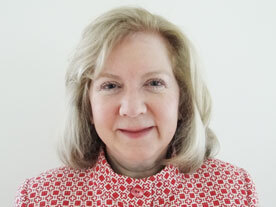 Jennifer (Jenny) Marwitz, M.A., Director of TBI Research, will join the Department of Physical Medicine & Rehabilitation as an instructor, effective June 1.
Jennifer (Jenny) Marwitz, M.A., Director of TBI Research, will join the Department of Physical Medicine & Rehabilitation as an instructor, effective June 1.
